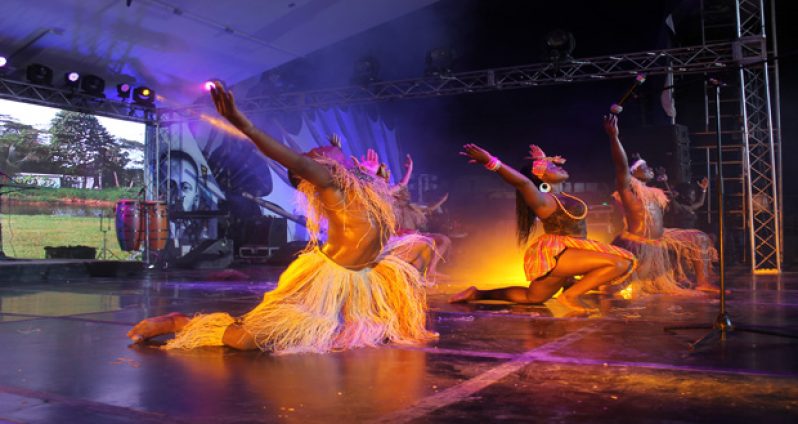By Ravin Singh
A fragmented historical past, plagued by a series of natural disasters and a society prone to diseases, Haiti’s move to host the 12th edition of the Caribbean Festival of Arts (CARIFESTA) leaves many unanswered questions, whether it was genuine bravery, or a deceptive move to overshadow the current state of the French-speaking nation.
Following the Haitian Revolution of 1986 which sought to restore democracy in an already fragile country – which had been the first to win independence in the region, disorientation of economic and social life had characterized the Caribbean country.

The trickledown effects of routine flooding and hurricanes, and the impact of a 7.0 earthquake in 2010 had shattered the little progress made in over three decades in the French-speaking nation.
The country at that time, even as it is today, was ranked by the World Bank as the poorest in the Western Hemisphere.
But despite these negative attributions to a country which has proven itself to be one of the richest -culturally in the region, Haiti shocked the Caribbean when it signalled its intention, via its President – Michel Martelly, in 2013, to host CARIFESTA XII – the region’s most anticipated cultural event.
Granted this request by the Caribbean Community (CARICOM), Haiti was now required to pump 300M Gourdes or US$75M into this 11-day event which was expected to facilitate more than 20 other countries in the region.
While some would opine that the French-speaking nation was not ready for such an undertaking, the efforts of the relevant authorities presented the idea that Haiti had successfully shielded itself, perhaps temporarily, against the general perception of being synonymous with poverty.
With general elections slated for later this year, intense political campaigning which, simultaneously with Carifesta, was dominating the small island, screamed an act of bravery on the part of the government.
This seemingly ‘brave’ move by the “poorest country in the Western Hemisphere” had been supported by thousands who flocked the cultural events during these eleven days. Even the eyes of those in almost rag-looking clothing seemed to feast on this grand event which was a historic undertaking by Haiti.
The events were nothing short of spectacular. Haitian culture in particular had dominated the forums and was marketed at its best. Commercialism had been the hallmark of CARIFESTA XII, with sale of art and craft being solicited at every street corner in Port-au-Prince.
Adding to this glorification campaign were beautifully designed grand stages and selectively enhanced facilities to house cultural booths which painted a picture of Haiti being almost comparable with the more developed states in CARICOM.

Theatrical and performing arts were staged at grand facilities which seemingly appeared new. Visiting delegations stayed at renowned hotels and were granted police escort to and from every event.
But while this appeared to be an act of bravery on the part of Haiti to host such an event, many were of an opposing conviction.
The magnitude of the impact of US$75M expended by the Haitian Government could have, in their estimation, developed Haiti, maybe short-term, and provide some footing for the almost 59 per cent of the population currently living on under US$2 a day.
According to one Haitian blogger, who described CARIFESTA as a “weapon of mass distraction,” the event is also an uncertain benefit of a state (Haiti) which cries insolvency.
The blogger went on to label CARIFESTA as an “expenditure of more to amuse the gallery” while offering their view that it was spearheaded by an “authoritarian regime” that attempts to erase the fact that after nearly three decades since the revolution, Haitian democracy boils down to eleven “elected” officials, 10 of whom, he said, are members of an obsolete institution.
“Over a third (38%) of Haitian households (CNSA data, June 2012) live in a situation of food insecurity, domestic production meets only 45% of our food needs. The Haitian people are hungry. It will be better when he [President Michel Martelly] has managed to put something in their mouths” the social commentator said in his blog.
Resulting from this level of poverty too is a growing crime rate which was experienced by members of visiting delegations. Despite heavily armed security forming human barricades to shield visitors , some were robbed in plain sight during the events.
However, at the opening ceremony on August 21, Martelly’s rationale of why Haiti had pursued this initiative of hosting CARIFESTA, was so the poverty-stricken country could unveil itself to its regional counterparts, having been in isolation for years.
Facing the Secretary General of CARICOM, Irwin LaRocque, in the presence of thousands of Haitians, Martelly expressed, “We [Haiti] want to see you [CARICOM] more often. We want to look you in the eyes and say, “We have problems, but together we can fix it.”
Whether this had been a genuine act of bravery for Haiti to host this recently concluded 11-day event, or an act of deception to overshadow the current state of Haiti – socially, economically and politically- what is known for sure is that the memories which were created during this time will be etched on the hearts of Haitians who benefitted significantly from it.
And the President’s rationale became a reality.
They looked us in the eyes. We saw their problems. And together, we could fix it.





.jpg)








